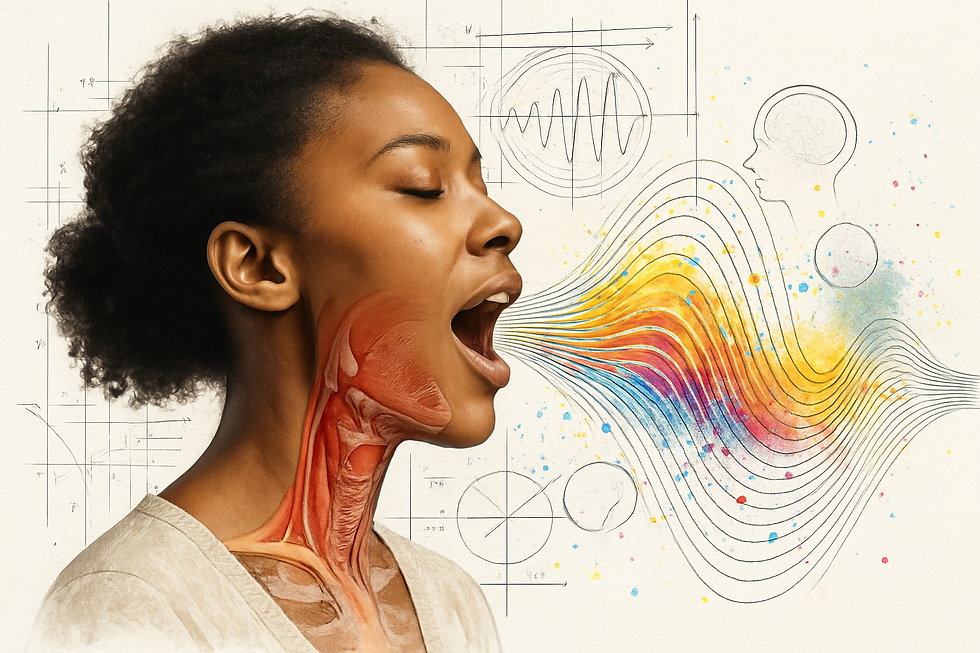A Good Voice
- rabie soubra
- Sep 28, 2025
- 2 min read
I've always been curious about how quickly and unanimously people recognize a great voice.
You can put someone with exceptional vocal ability in any room, a dinner party, a karaoke bar, even just humming in an elevator, and within seconds, everyone knows they're hearing something special.
What's strange is how consistent this recognition is across different people with completely different musical tastes.
A jazz lover and someone who only listens to pop will both immediately acknowledge the same voice as extraordinary.
They might disagree about everything else, but they'll nod in perfect agreement about vocal talent.
This suggests we're all carrying around some kind of preset criteria for what makes a voice good, even though most of us couldn't articulate what those criteria actually are.
The reverence that follows is equally fascinating.
The moment we identify someone as having "a voice," their social status shifts.
They become the person everyone wants to hear sing, the one who gets asked to perform at gatherings, the one whose opinion about music suddenly carries more weight.
It's as if possessing exceptional vocal ability automatically grants a form of authority that extends beyond singing.
Part of this probably comes down to rarity.
Truly great voices are uncommon enough that encountering one feels like a small miracle.
We treat exceptional singers the way we might treat any rare talent, with a mixture of admiration and something approaching awe.
There's an immediate sense that we're in the presence of someone who can do something most of us simply cannot.
But the reverence goes deeper than just appreciating skill.
A great voice does more than sound pretty, it communicates in ways that ordinary voices can't.
When someone with real vocal ability speaks or sings, they're transmitting multiple messages simultaneously.
They can convey authority, vulnerability, project confidence, reveal emotions, create intimacy , hypnotize maybe, etc…
This power can completely transform how we see someone.
Consider opera singer Jessye Norman.
Not conventionally beautiful by typical standards, but possessing such an angelic voice that people instantly revere her, love her, and genuinely wish they could simply say hello to her.
Her voice becomes so overwhelming that it redefines everything else about her.
You don't think anything else except "she's magnificent", because the vocal power is that commanding.
And the “beauty” bias is sharply redefined.
This demonstrates something remarkable about how great voices operate.
They add to someone's appeal for sure, but they become the primary lens through which we see the entire person.
The voice overwrites our usual criteria for admiration and respect, creating reverence that transcends conventional attractiveness, charisma, or any other factor we normally use to judge whether someone is worth our attention.
This multi-layered communication might explain why we respond so strongly to great voices.
They're not just delivering words or melodies; they're speaking a more sophisticated language that hits us on emotional levels we don't fully understand.
A great voice can make you trust someone you've never met, feel moved by lyrics you'd normally find cheesy, or pay attention when you'd rather be doing something else.






Comments